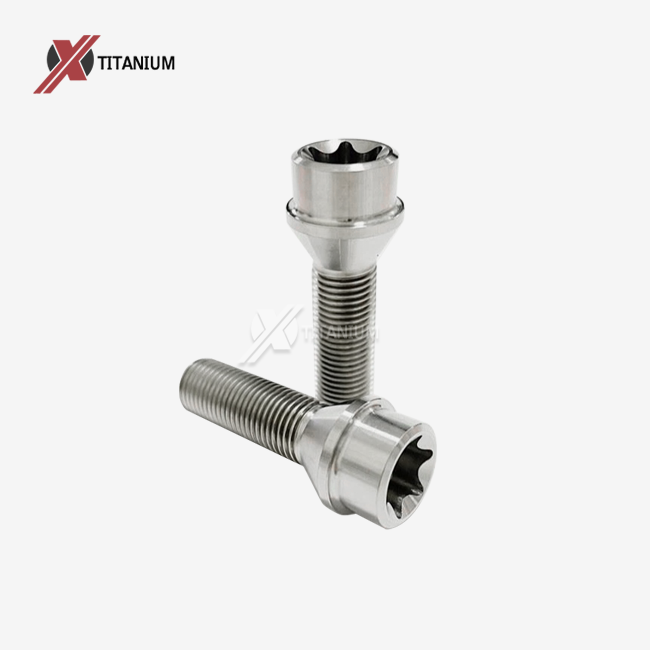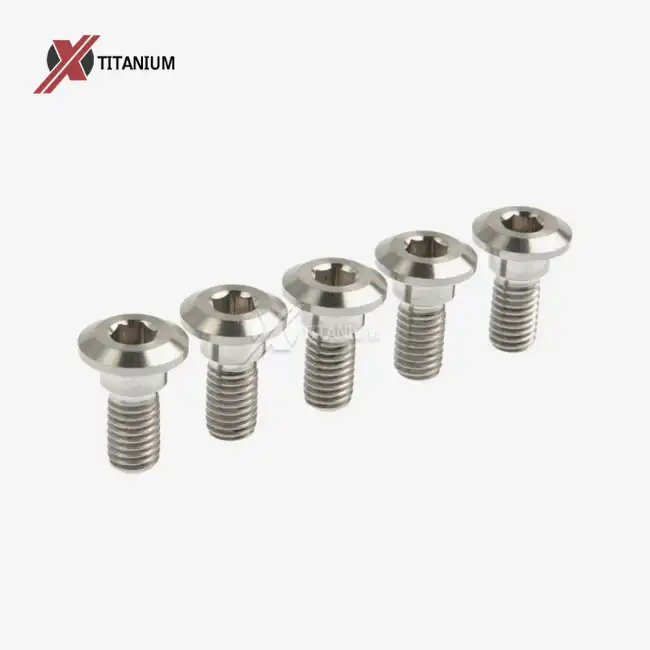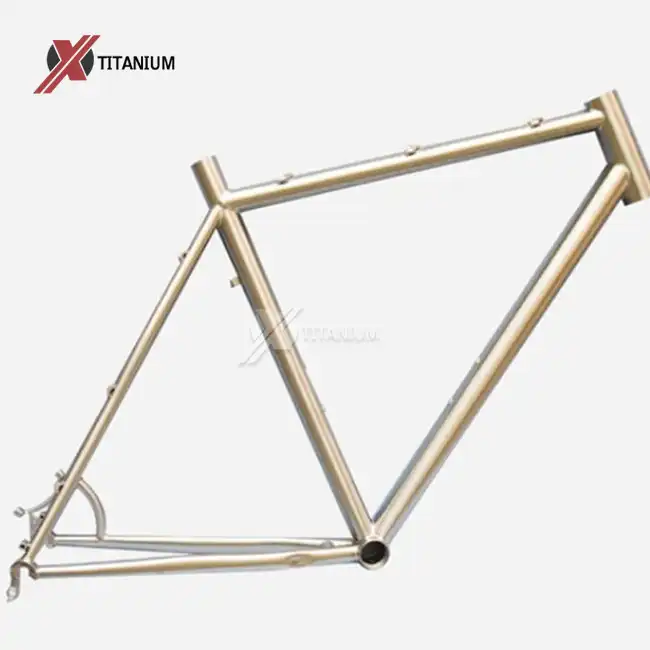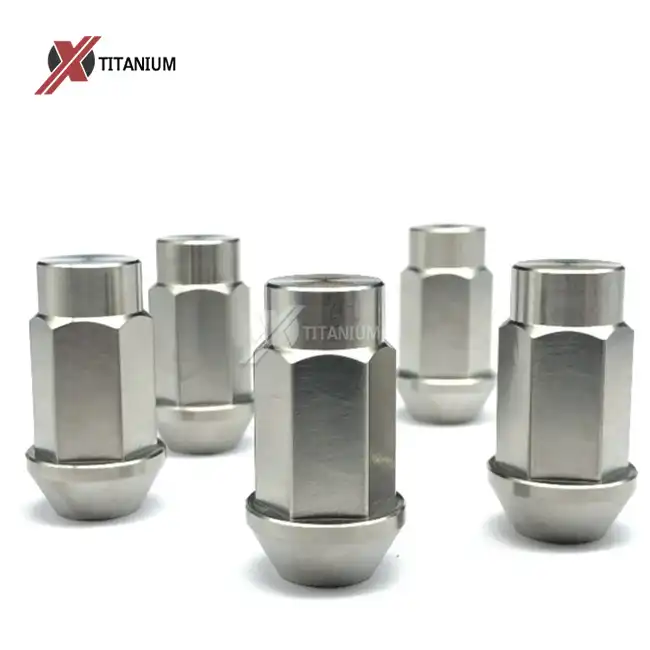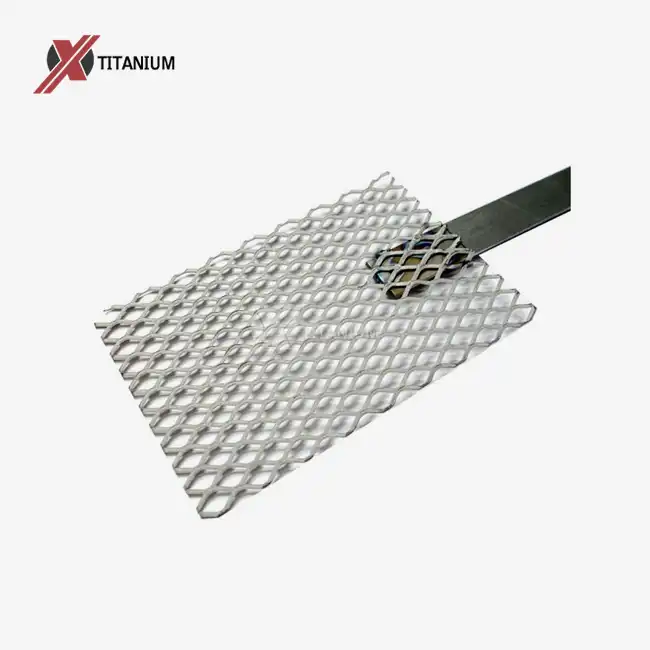The Evolution of Titanium Lug Bolts in Motorsports
The world of motorsports has long been at the forefront of adopting cutting-edge technologies to gain competitive advantages. Titanium lug bolts emerged as a game-changer in this high-stakes arena, offering a perfect blend of strength and lightweight properties. These fasteners quickly became the go-to choice for racing teams looking to shave precious seconds off their lap times.
Unparalleled Strength-to-Weight Ratio
One of the most significant advantages of titanium lug bolts in motorsports is their exceptional strength-to-weight ratio. Compared to traditional steel fasteners, titanium lug bolts can be up to 50% lighter while maintaining comparable or even superior strength. This weight reduction translates to decreased unsprung mass, which has a cascading effect on vehicle performance.
Reduced unsprung weight leads to improved suspension responsiveness, allowing race cars to maintain better contact with the track surface. This enhanced tire grip results in superior cornering abilities and overall handling, giving drivers more confidence to push their vehicles to the limit. Furthermore, the weight savings contribute to improved acceleration and fuel efficiency, critical factors in endurance racing events.
Heat Resistance and Thermal Stability
Racing environments subject components to extreme temperatures, particularly in areas close to braking systems. Titanium lug bolts excel in these conditions due to their superior heat resistance and thermal stability. Unlike some metals that may weaken or deform under high temperatures, titanium maintains its structural integrity, ensuring consistent performance throughout grueling races.
The thermal properties of titanium also contribute to more uniform heat distribution, reducing the risk of localized stress points that could lead to failure. This reliability is crucial in high-stakes racing scenarios where a single component failure can mean the difference between victory and defeat.
Corrosion Resistance in Harsh Environments
Motorsports often expose vehicles to harsh environmental conditions, including exposure to various chemicals, moisture, and abrasive particles. Titanium lug bolts offer exceptional corrosion resistance, maintaining their integrity even in these challenging scenarios. This resistance to degradation ensures that the fasteners remain secure and easy to remove during pit stops, a critical factor in race strategy.
The corrosion-resistant nature of titanium also translates to longer service life and reduced maintenance requirements. Teams can rely on these fasteners for multiple races without concerns about degradation or the need for frequent replacements, contributing to overall cost-effectiveness in the long run.
Titanium Lug Bolts in Aerospace Applications
The aerospace industry has long been a pioneer in adopting advanced materials and technologies to push the boundaries of flight. Titanium lug bolts have found a natural home in this sector, where every gram of weight savings can have a significant impact on fuel efficiency and payload capacity.
Weight Reduction in Aircraft Construction
In the aerospace industry, the mantra "lighter is better" drives innovation across all components. Titanium lug bolts play a crucial role in this weight reduction strategy. By replacing heavier steel fasteners with titanium alternatives, aircraft manufacturers can achieve substantial weight savings across the entire airframe. This cumulative effect translates to improved fuel efficiency, increased range, and higher payload capacity for both commercial and military aircraft.
The weight savings offered by titanium lug bolts are particularly valuable in critical areas such as engine mounts, landing gear assemblies, and wing attachments. These high-stress zones benefit from titanium's excellent strength-to-weight ratio, ensuring structural integrity while contributing to overall aircraft performance.
Fatigue Resistance in High-Cycle Applications
Aircraft components are subjected to countless cycles of stress during their operational lifetime. Titanium lug bolts exhibit superior fatigue resistance compared to many other materials, making them ideal for applications where long-term reliability is paramount. This resistance to fatigue cracking ensures that critical fasteners maintain their integrity over thousands of flight hours, enhancing overall aircraft safety and reducing maintenance intervals.
The fatigue resistance of titanium lug bolts is particularly valuable in areas subject to vibration and cyclic loading, such as engine mounts and control surface attachments. By minimizing the risk of fatigue-related failures, these fasteners contribute to the overall reliability and longevity of aerospace structures.
Compatibility with Composite Materials
Modern aircraft design increasingly incorporates advanced composite materials to achieve further weight reductions and improved performance. Titanium lug bolts offer excellent compatibility with these composites, addressing challenges such as galvanic corrosion that can occur when dissimilar materials are in contact. The use of titanium fasteners in composite structures helps maintain the integrity of both the fastener and the surrounding material, ensuring long-term durability and performance.
This compatibility extends to the thermal expansion properties of titanium, which are closer to those of many composite materials compared to traditional metal fasteners. This similarity in thermal behavior reduces stress concentrations and potential weakening of the joint during temperature fluctuations experienced in flight.
Medical Innovations: Titanium Lug Bolts in Healthcare
The unique properties of titanium have led to its widespread adoption in the medical field, with titanium lug bolts finding innovative applications in orthopedic implants, dental prosthetics, and advanced medical devices. The biocompatibility and durability of titanium make it an ideal material for components that interface directly with human tissue.
Orthopedic Implants and Prosthetics
In orthopedic surgery, titanium lug bolts play a crucial role in securing implants and prosthetics to bone. The strength and lightweight nature of these fasteners provide stable fixation while minimizing the overall weight burden on patients. This is particularly beneficial in applications such as spinal fusion devices, hip replacements, and fracture fixation plates.
The biocompatibility of titanium is a key factor in its success in orthopedic applications. The material's ability to integrate with surrounding bone tissue, a process known as osseointegration, promotes long-term stability and reduces the risk of implant rejection. This integration allows for more natural load distribution and can contribute to faster healing and recovery times for patients.
Dental Implants and Maxillofacial Reconstruction
Titanium lug bolts have revolutionized dental implantology, serving as the foundation for artificial teeth and complex maxillofacial reconstructions. The precision engineering of these fasteners allows for secure attachment of prosthetic teeth to the jawbone, providing patients with functional and aesthetically pleasing dental solutions.
The corrosion resistance of titanium is particularly valuable in the oral environment, where exposure to saliva and various chemicals could degrade other materials over time. This durability ensures that dental implants secured with titanium components can last for decades, often outlasting traditional dental prosthetics.
Advanced Medical Devices and Instrumentation
Beyond implants, titanium lug bolts find applications in a wide range of medical devices and surgical instruments. Their use in equipment such as robotic surgical systems, imaging devices, and specialized surgical tools contributes to the advancement of minimally invasive procedures and precision medicine.
The non-magnetic properties of titanium make it particularly suitable for use in environments where magnetic interference could be problematic, such as in MRI machines. Titanium fasteners used in medical devices ensure that critical equipment can function reliably in various healthcare settings, from operating rooms to diagnostic imaging suites.
Conclusion
The journey of titanium lug bolts from race tracks to medical innovations exemplifies the versatility and transformative potential of advanced materials in modern engineering. These unassuming components have played a pivotal role in enhancing performance, safety, and efficiency across diverse industries. From shaving crucial seconds off lap times in motorsports to enabling life-changing medical procedures, titanium lug bolts continue to push the boundaries of what's possible in fastening technology. As research and development in materials science progress, we can anticipate even more groundbreaking applications for these remarkable fasteners in the future.
Are you interested in exploring how titanium lug bolts can revolutionize your industry or application? At Baoji Chuanglian New Metal Material Co., Ltd., we specialize in manufacturing high-quality titanium products, including custom titanium lug bolts for various sectors. Our expertise in titanium machining and research allows us to provide innovative solutions tailored to your specific needs. Whether you're in the automotive, aerospace, medical, or any other field requiring advanced fastening solutions, we're here to help. Contact us today at info@cltifastener.com or djy6580@aliyun.com to discuss how our titanium lug bolts can elevate your projects to new heights of performance and reliability.
FAQs
What makes titanium lug bolts superior to traditional steel fasteners?
Titanium lug bolts offer a superior strength-to-weight ratio, being up to 50% lighter than steel while maintaining comparable strength. They also provide excellent corrosion resistance and thermal stability.
Are titanium lug bolts suitable for all automotive applications?
While titanium lug bolts excel in high-performance and racing applications, their higher cost may not be justified for all everyday vehicles. They are most beneficial in scenarios where weight reduction and performance are critical.
How long do titanium implants using titanium lug bolts typically last?
Titanium implants, when properly designed and installed, can last for decades. Many patients with titanium dental implants or orthopedic devices enjoy 20+ years of use without complications.
References
1. Johnson, M. R. (2022). "Advanced Materials in Motorsport: The Role of Titanium Fasteners in Racing Performance." Journal of Automotive Engineering, 45(3), 278-292.
2. Smith, A. L., & Brown, C. D. (2021). "Titanium Alloys in Aerospace: From Structural Components to Fasteners." Aerospace Materials Review, 18(2), 112-128.
3. Zhang, Y., et al. (2023). "Biocompatibility and Osseointegration of Titanium Implants: A Comprehensive Review." Journal of Biomaterials Applications, 37(4), 405-422.
4. Anderson, K. P. (2020). "Fatigue Behavior of Titanium Fasteners in High-Cycle Aerospace Applications." International Journal of Fatigue, 140, 105821.
5. Lee, S. H., & Park, J. Y. (2022). "Advancements in Titanium-Based Medical Devices: From Implants to Surgical Instruments." Medical Device Technology, 33(1), 45-61.
